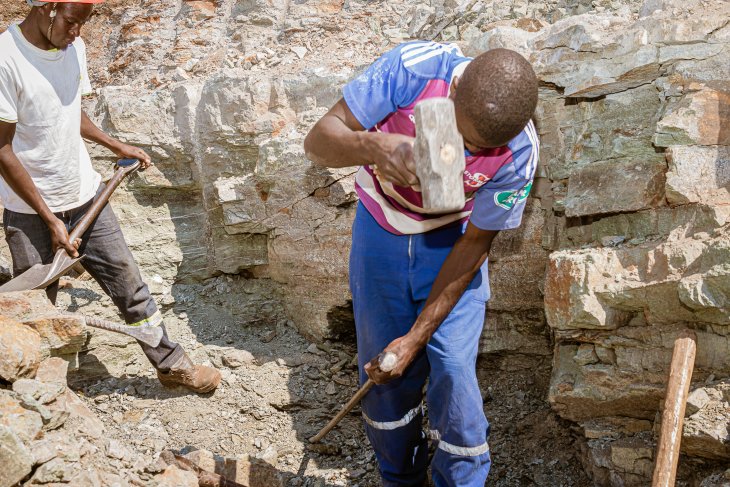In October 2022, lithium prices reached an all-time high.
Lithium is an essential component for electric vehicle batteries, and with the current high ambitions in electrification of transport, demand for the mineral has been rapidly increasing, hitting a record price of $74,475 per tonne in October 2022.

Artisanal chrome mining in Lalapanzi, Midlands Province. Photo: Ernest Muvunzi, Fotokulture Films
In Zimbabwe, where some of the world’s largest deposits of lithium are found, the surging prices have led small-scale and artisanal miners to turn to mine lithium ores.
According to several news reports, more than 5000 artisanal miners around Sandawana Mine in the southern Mberengwa District have been digging up lithium-mineral bearing rocks and selling them cheaply across the borders to South Africa. Shortly after these cases became known in November 2022, the police barred miners from accessing the sites and arrested several of them for illegal mining. Consequently, artisanal miners had to leave behind the heaps of lithium ore they had extracted, unsold.
Shortly after the expulsion of small-scale miners, the Zimbabwean government introduced a ban on the export of unprocessed lithium. The export of processed lithium concentrates is exempted from the ban, thus encouraging large-scale lithium mining and processing. At first glance, this measure seems to be an act of resource nationalism that supports value creation within the economically troubled country. However, the new regulation specifically targets artisanal miners. Despite generally supporting the government’s move, the Southern African Resource Watch points out that criminalising artisanal lithium mining above all affects those that base their livelihoods on this activity. “The ASM sector in Zimbabwe remains critical as it contributes to the livelihood of over 1,5 million people in the country”, SARW writes.
In Goromonzi, where a similar rush for lithium took place, the local communities opposed to the government’s strict intervention. In particular, opposition to Chinese-run mines is on the increase, as Chinese companies such as Huayou, Sinomine and Chengxin Lithium have in recent years bought up lithium projects and largely control the emerging sector. In a letter to the district council, a community organisation demanded the right to control and mine the resources themselves. “We can’t allow Chinese firms to take everything whilst we are their cheap labour”, the letter reads. The area to the southeast of the capital Harare has traditionally been known for gold mining but is also where Zhejiang Huayou Cobalt’s newly acquired Arcadia lithium mine is under development.
As the example of Zimbabwe shows, a battery mineral rush sparks governments as well as large-scale and small-scale miners trying to reap benefits from high prices. However, increasing demands might not only bring about new opportunities, but also new tensions and conflicts over claims for natural resources. Artisanal lithium mining is a new challenge to tackle in the energy transition.
Authors
- Anna-Sophie Hobi is a PhD candidate at NMBU, and a member of the Green Curses project
- Joseph Mujere is a Lecturer in Modern African History, Department of History, University of York